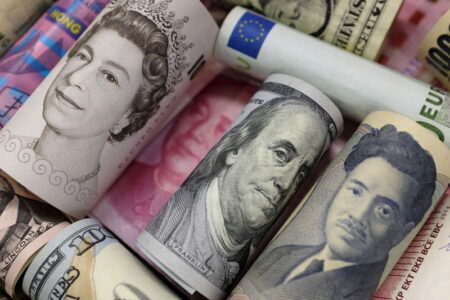ST PETERSBURG (Reuters) – Russian President Vladimir Putin said on Friday that the idea of moving the headquarters of major companies to regions outside Moscow deserves attention and called for improving vocational education to help ease the labor shortage.
Putin set out a set of ambitions for Russia's $2 trillion economy, said the world's second-largest oil exporter needed to reduce imports and significantly boost the use of non-Western currencies in trade settlement, and called for a major expansion in domestic financial markets.
Putin, who was speaking at the International Economic Forum in St. Petersburg, said trade with Asia was increasing and that nearly 40% of Russia's foreign trade was now in rubles, with the share of the US dollar, euro and other Western currencies declining.
Putin said that Russia would seek to boost the share of settlements made in the currencies of the BRICS countries, a group of economies that includes Brazil, Russia, India, China and South Africa.
“Last year, the share of Russian export payments in “toxic” currencies of unfriendly countries halved, while the share of the ruble in export-import transactions is growing – today it is close to 40%,” Putin said.
Russia regularly refers to Western countries that have imposed sanctions on it over the war in Ukraine as “unfriendly countries.”
Putin said Russia must reduce its imports by creating competitive production and boosting investment in fixed assets by 60% by 2030.
He added that the value of the Russian stock market should double by the end of the decade and reach two-thirds of Russia's GDP.
The Russian economy has defied Western sanctions over the past two years. Its official economic growth forecast for 2024 is 2.8%, after expanding 3.6% last year, a faster rate than the United States or the European Union.
This recovery has been helped by Moscow's heavy spending on defense and security, but economists say growth depends on state-financed arms and ammunition production, masking problems that hinder any improvement in Russians' living standards.
Many officials also cited labor shortages as a major concern, which has been exacerbated by the military mobilization in 2022 and the migration of hundreds of thousands of people since the beginning of the war in Ukraine. The Central Bank of Russia has repeatedly said that this is the main obstacle to increasing production.
